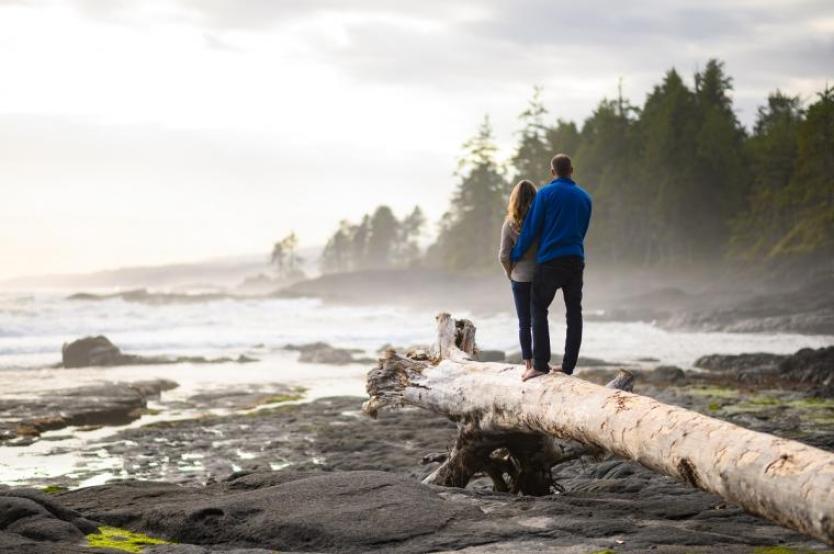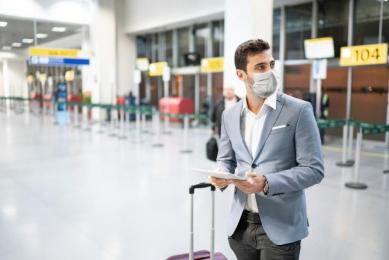- Managing your Practice
-
- Your Benefits
-

Introducing the ultimate Club MD experience
From work to play, and everything in between, we provide you with access to hundreds of deals from recognizable, best-in-class brands, elevating every facet of your life – from practice supports to entertainment, restaurants, electronics, travel, health and wellness, and more. Your Club MD membership ensures that these deals are exclusive to you, eliminating the need to search or negotiate.
Welcome to the ultimate Club MD experience. Your membership, your choices, your journey.
-
- Advocacy & Policy
-
- Collaboration
- News & Events
-

Stay Informed
Stay up to date with important information that impacts the profession and your practice. Doctors of BC provides a range of newsletters that target areas of interest to you.
Subscribe to the President's Letter
Subscribe to Newsletters
-
- About Us
-

Travel and COVID-19: What You Should Know
July 22, 2020
Together for Health
With the lifting of some COVID-19 restrictions, British Columbians are starting to travel again. Many are taking advantage of the summer weather to explore our own province as non-essential air travel continues to be discouraged by experts and authorities. Air travel is particularly concerning since Canada’s largest airlines - WestJet and Air Canada – announced they were ending their seat distancing policies on July 1. That said, there are times when you may need to board a flight, such as looking after a sick loved one, or dealing with a family emergency.
With the number of cases of COVID-19 rising as restrictions are eased, we are sharing some travel tips to keep yourself and others safe when you travel whether you are travelling in our province or boarding a plane for more faraway destinations.

Things to consider before you go
If you feel sick, don’t travel – It is crucial that you don’t travel if you feel unwell, or have been in contact with someone with COVID-19. If you are flying, many airports are running temperature screening initiatives to check passengers prior to boarding. If you become ill while travelling, you need to self- isolate immediately and call 8-1-1 for guidance.
Know before you go – Research and respect the rules that communities (in BC, Canada or another country) have in place to prevent the spread of COVID-19. Some communities are eager to welcome visitors while others are hesitant. It is important to know each community’s decisions and protocols before you plan your trip. For example, many Indigenous communities in BC remain closed to visitors for now. Check with Tourism BC and Indigenous Tourism BC’s websites for more information.
If you must travel to another country, it is especially important to look for travel advisories and understand self-isolation protocols. Check on the government website of your destination for up-to-date information prior to your journey. Remember, if you are returning to BC after travelling internationally, you will need to self-isolate for 14 days, and complete a self-isolation plan.
Bring your travel manners with you. Be respectful of communities you are visiting by:
- Being as self-sufficient as possible by bringing food and other supplies with you especially if you are travelling to rural, more isolated communities.
- Keeping your stay short.
- Making as few stops as possible along the way.
- Doing as many activities as possible outdoors.
Hold the line. Be prepared to practice the same precautions away, as you would at home:
- Maintain 2 metre physical distancing with people outside your travel group
- Wear a mask if you cannot keep a safe distance from people outside of your travel group for an extended period of time. Where physical distancing is not possible, wear a mask.
- Wash your hands or use hand sanitizer regularly.
- Cough or sneeze into a tissue or into your elbow. Throw away your tissue and wash or sanitize your hands as soon as possible.
If you must take a plane
In some circumstances, you may need to board an airplane. Here are some tips to help minimize risk for you and for other passengers:
Get a ride to the airport – The best option is to have someone you live with take you to the airport, as this keeps your interactions with others limited. If you have to take a taxi, rideshare, or public transit, wear a mask and try to sit in a physically-distanced way, if possible.
Check-in ahead o f time – this not only saves you time, but keeps you safe by limiting contact with others.
f time – this not only saves you time, but keeps you safe by limiting contact with others.
Limit touchpoints at the airport – Limit contact with frequently-touched surfaces such as ticket machines, handrails, water fountains, and elevator buttons. As you move through security, customs, and into the departure lounge be as prepared as possible by using digital boarding passes and have your ID easily accessible. If you cannot avoid touching the surfaces, sanitize your hands as soon as you can.
Ask if moving seats is possible – If there are groups of empty seats on your flight, ask the attendant if you can be moved into one to practice social distancing.
Sanitize your seat – Be sure to wipe down your seating area with antibacterial wipes, including the seat itself, armrests, headrest, tray, TV screen, and air vents – wipe anything you will touch during your flight. Clean your hands if you need to get up, or touch another passenger’s seat, and try to limit bathroom trips.
Keep your mask on – Wear your mask throughout the flight – it is a requirement. A range of new research is now demonstrating that wearing face coverings not only protects others from the wearer’s exhaled particles, but will also decrease the wearer’s risk of infection. This is crucial on a flight, when physical distancing might not be possible.
Try to limit food and drink – Many airlines have eliminated or reduced their food and drink options to keep hygiene standards high, and reduce touch points. If you’ll likely be hungry or thirsty on the flight, bring your own food and drink with you.
Resources
Travel information from the BCCDC
Government of BC travel guidelines
Government of Canada travel advisories




